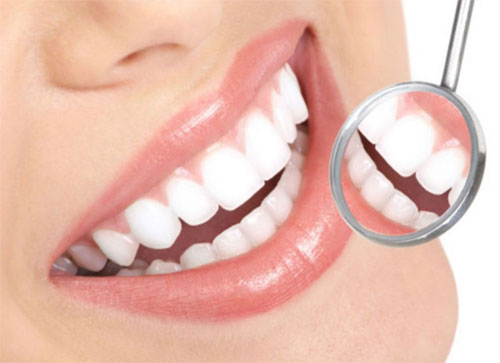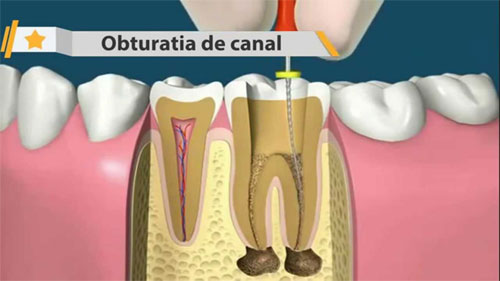Natural Approaches To Reversing Tooth Decay (2)
Read the first part of the article
Ozone And Oxygenation For Oral Health

Another important element of oral health is oxygenation, which stops harmful bacteria from breeding and spreading while getting rid of them and the toxic waste they produce in order to prevent infections. This is accomplished through the use of ozone, a regenerative substance that in addition to performing these maintenance functions also helps promote new cell growth in places where it’s needed – whether it be gum tissue, tooth enamel, or even a tooth itself.
You can ozonate your mouth at home with products like Living Libations Ozonated Happy Gum Gel, which you can apply directly on your teeth or use as a toothpaste. You can even apply it to your floss! Ozone can also be injected into the mouth by qualified dentists, which is more applicable in cases where an individual already has oral health problems that need to be remedied rather than prevented.
Dr. Martin Gallagher is an integrative medical specialist who utilizes what he calls “ozonotherapy,” an intravenous ozone therapy that involves injecting medical-grade oxygen (O3) directly into the bloodstream in order to target viruses, bacteria, fungi, yeast, and molds. As with essential oils, ozone therapy is selectively toxic, meaning it only goes after harmful microbes, leaving the healthy ones alone.
“Ozonated gas has many dental uses,” explain Ron and Nadine Artemis. “Cavities exposed to ozone gas will subsequently harden. In the case of a nerve exposure, ozone water followed by ozone gas will often prevent the nerve from dying. Irrigation of a surgical site with ozone water will speed healing and help remineralize the bone. The gas injected into cavitation sites is part of a protocol to clear up the cavitation. Ozonized water is used for ingesting, gargling, and irrigating gum pockets.”
Essential Oils And Remineralization Paste
One of the amazing things about essential oils is that they block a process known as “quorum sensing,” which is how pathogens in the mouth such as harmful bacteria communicate with other pathogens throughout the rest of the body to “strategize” a plan of attack.
Essential oils like those of frankincense, oregano, neem, clove, cinnamon, tea tree, and cardamom – the “classics” long used in traditional dental care – not only block quorum sensing, but they also penetrate and destroy “biofilms” in the mouth where pathogens live.
Even better is the fact that essential oils only target the damaging bacteria, while preserving the beneficial ones that safeguard the integrity of teeth and gums. You’ll find essential oils in many so-called “remineralization” pastes that help strengthen teeth and reinforce their defenses against pathogens.
Tooth Serums With Botanical Biotics
Additional support for your mouth’s microbiome can be found in liquid “tooth serums” that contain essential oils and other botanical biotics. Living Libations sells a Yogi Tooth Serum that contains essential oils known to support immunity and fight pathogens, as well as a special resin known as “mastic” that helps remove tooth plaque and support connective tissue within the oral cavity.
Diatomaceus Earth, Activated Charcoal, And Mct Oil
Keeping your teeth clean and cavity-free using these methods is like washing your car regularly, but what about that shiny coat of wax? Surely you want to show off those pearly whites in their Sunday best, and you can do so by using natural substances like food-grade diatomaceous earth (a type of magnetic clay); activated charcoal; and a healthful fat like concentrated medium-chain triglyceride (MCT) oil, derived from coconut and palm kernels.
Combining either the diatomaceous earth or the activated charcoal (or a mixture of both) with a little bit of MCT oil works like a tooth polish – just apply a bit to your toothbrush, swirl it around on your teeth like you would a wax sponge, and be amazed at the results. This is a safe, non-toxic way to promote whiter, healthier teeth without the use of harsh chemicals.
An excellent MCT product is Bulletproof’s Brain Octane Oil, which is 16 times more concentrated with MCTs than coconut oil, containing the most ketogenic (meaning it tells the body to burn fats for fuel rather than carbohydrates) type of MCT, known as C8. Brain Octane Oil, by the way, is an excellent dietary supplement to take for increased energy and fat loss.
The Dangers Of Root Canals
Perhaps you’re thinking to yourself: sure, these prevention and maintenance tips are great for people who don’t already have dental problems, but how do I deal with more advanced tooth decay? Or what if my dentist is advising me to get a serious procedure like a root canal, claiming that this is the only way to prevent further damage from occurring?
My advice to you is the same as it would be to a cancer patient being pressured into getting chemotherapy and radiation treatments – just stop for a minute, take a deep breath, and consider all your options.
As I mentioned earlier, many of the prevention and maintenance techniques I’ve outlined actually do help in addressing even the most serious dental issues, especially when administered under the guidance of a qualified holistic dentist.
Many people don’t realize this, but procedures like fillings and root canals don’t fix the underlying issues that caused them in the first place. Root canals are especially problematic because dentists can’t properly sterilize the tooth in which they are performed, which means likely infections later on down the road – and truth be told, most people don’t even need a root canal in the first place!
Dr. Stuart Nunnally, a holistic dentist from Texas, conducted the world’s first independent lab study on root canals and found that nearly all teeth with root canals end up developing some kind of pathology. He warns that these are mostly necrotic bacterial infections, containing pathogens as extreme as those that cause syphilis, Lyme disease, and even leprosy.
Root canals have even been linked to breast cancer. Up to 93% of women diagnosed with breast cancer also have one or more root canals on the same side as their cancer, according to research conducted by Dr. Robert Jones.
Dr. Josef Issels, a German physician, came to similar conclusions about root canals. Upwards of 97% of the “terminal” cancer patients he treated throughout his 40-year career had previously had root canals.
“The whole goal of a root canal is to take an infected tooth and… scrape out the whole pulp chamber and the nerves,” Nadine Artemis explains. “What happens is then it becomes a little necrotic nest festering with pathogenic bacteria that every time you chew gets squeezed out and into your body and no blood can get there and so you basically have a full anaerobic setup for these bacteria.”
Teeth that are candidates for root canals should instead be extracted using safer means, which often means properly removing the periodontal ligament. If the periodontal ligament isn’t properly removed, then 10-20 years down the road it could result in a jaw cavitation, a situation in which the jawbone begins to rot – nobody wants this, of course!
Another option is Platelet-Rich Plasma (PRP) Therapy, a stem cell regrowth procedure that involves injecting a patient’s own blood plasma into a root canal, receding gum, or shoe (a restorative covering placed over a damaged tooth cusp), which initiates a six-month-long natural healing process that minimizes the risk of bacterial infection.
Why You Should Never Get Titanium (Or Any Other Heavy Metal) Implanted Into Your Body

Porcelain, resin composite, and titanium fillings are some of the more common alternatives to amalgam (mercury-based) dental fillings. These are supposed to be safer than amalgams – but are they really? (By the way, if you still have amalgam fillings, I urge you to look into getting them removed by a qualified holistic dentist. However, they must be an experienced holistic/biological dentist or it’s better not to touch them and risk releasing more heavy metals into your body.)
Composite fillings are questionable because they may contain plastic-based ingredients like bisphenol-A (BPA) that interfere with hormones and are linked to causing cancer. So-called “safe” metal fillings and implants such as titanium often contain other metals in trace amounts. For instance, if a supposedly isolated metal compound like titanium contains less than 2% of another metal such as nickel (a highly toxic, carcinogenic heavy metal), it can still be called “pure” titanium and end up in your mouth.
The well-respected Dr. Hal Huggins, founder of the Hal Huggins Institute, calls heavy metals “the marriage of microbes and metals,” because microbes love to feed on these metals. This is a nightmare for your teeth and body, which is why many holistic dentists now use zirconium or ceramic if they absolutely must give a patient a filling.
Just remember as a rule of thumb… anything but metal, and absolutely no mercury.
How To Find The Right Dentist
If your oral health situation requires intervention beyond what you feel comfortable addressing on your own using the information here, my recommendation is to take the time to choose a qualified holistic dentist (aka a “biological” or “environmental” dentist) trained in applying these and other methods in a clinical setting.
yogaesoteric
July 23, 2018
Also available in:
 Română
Română
